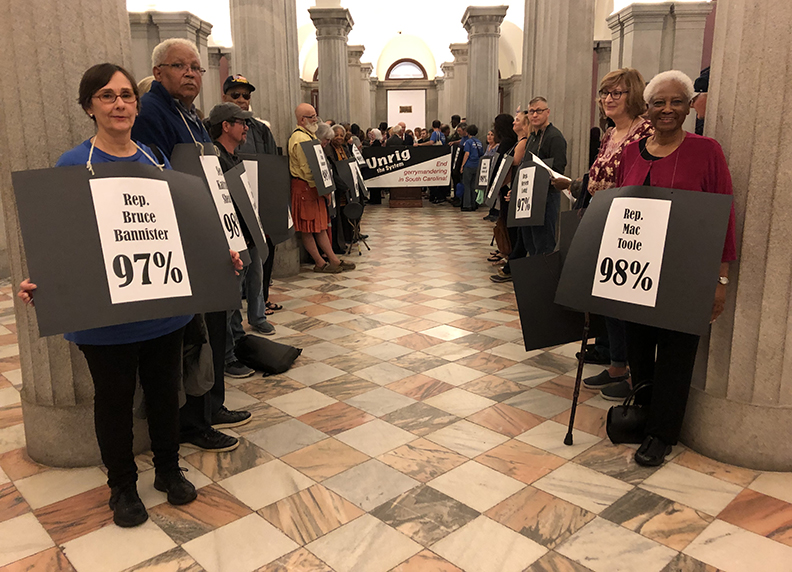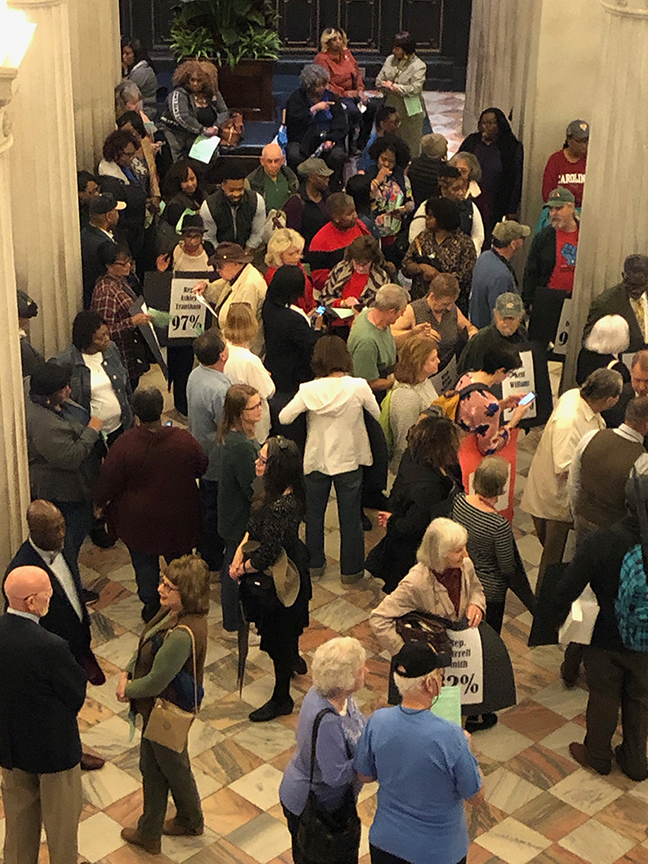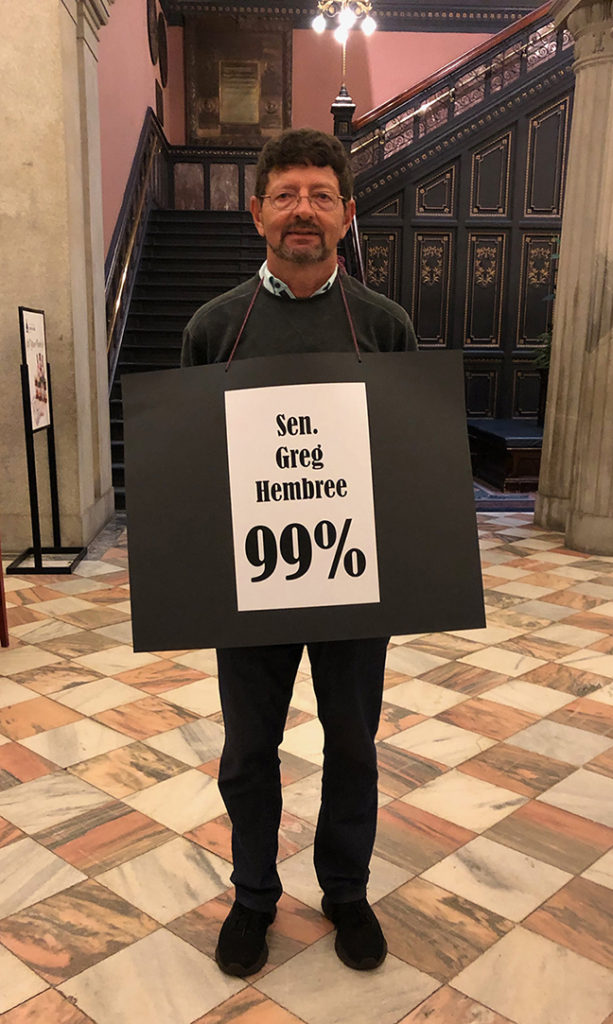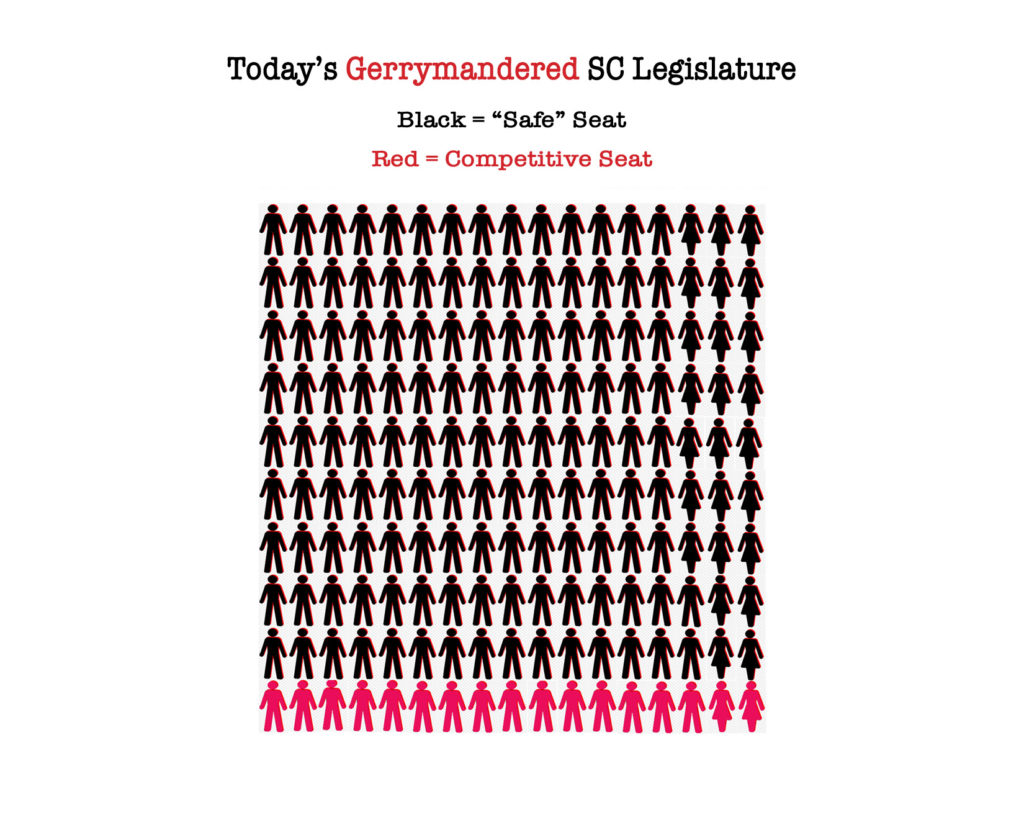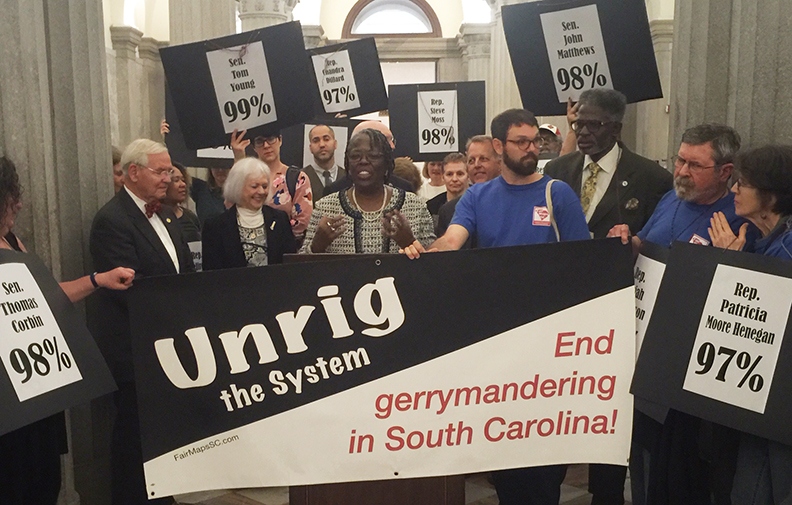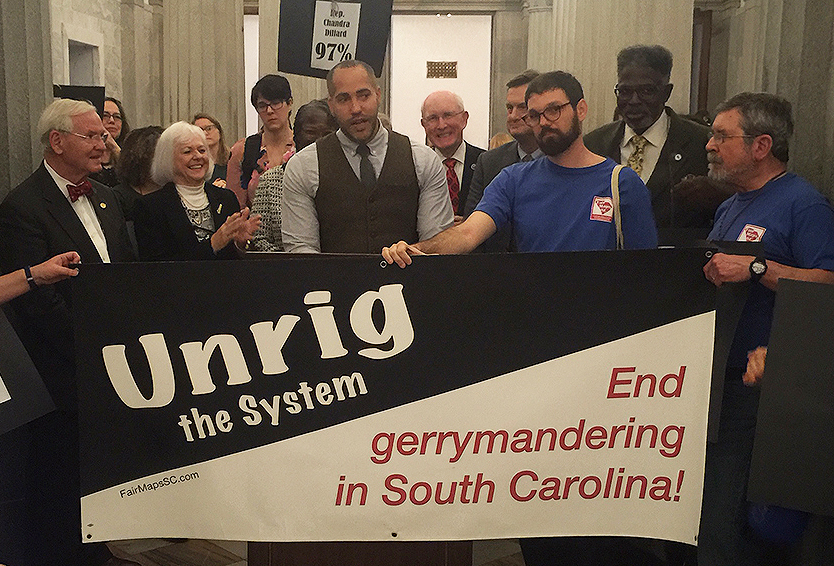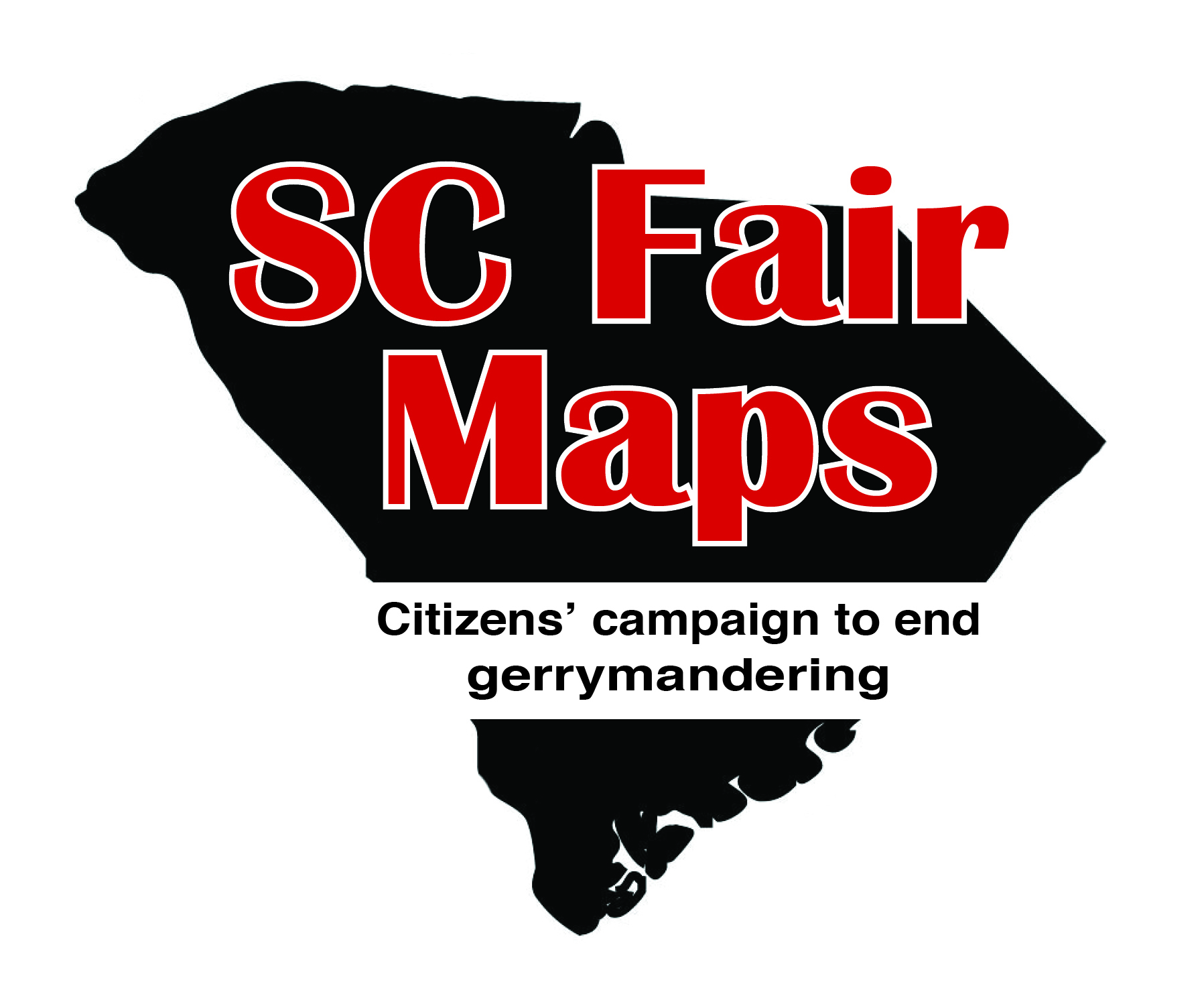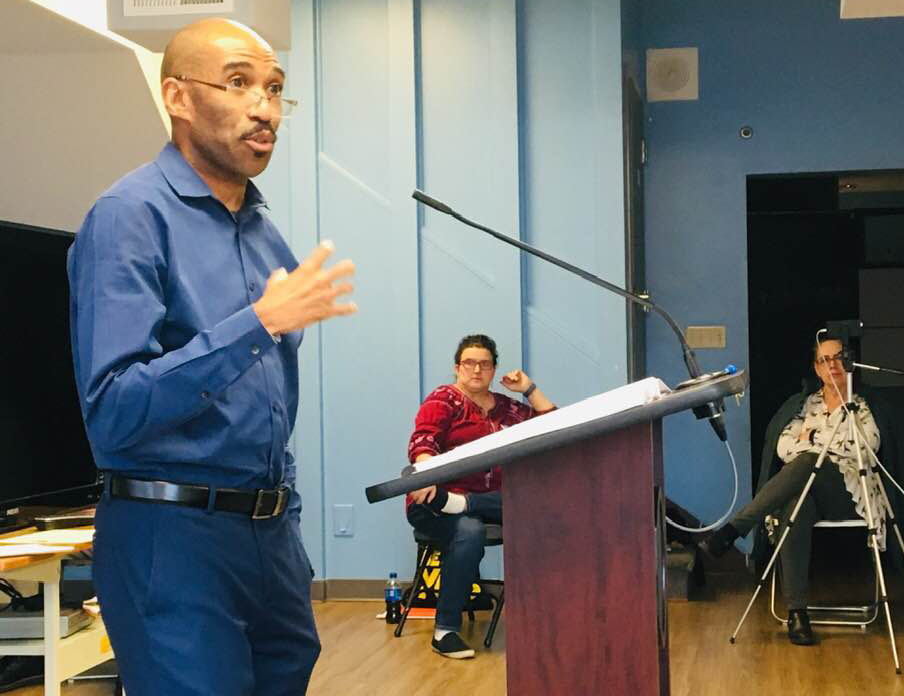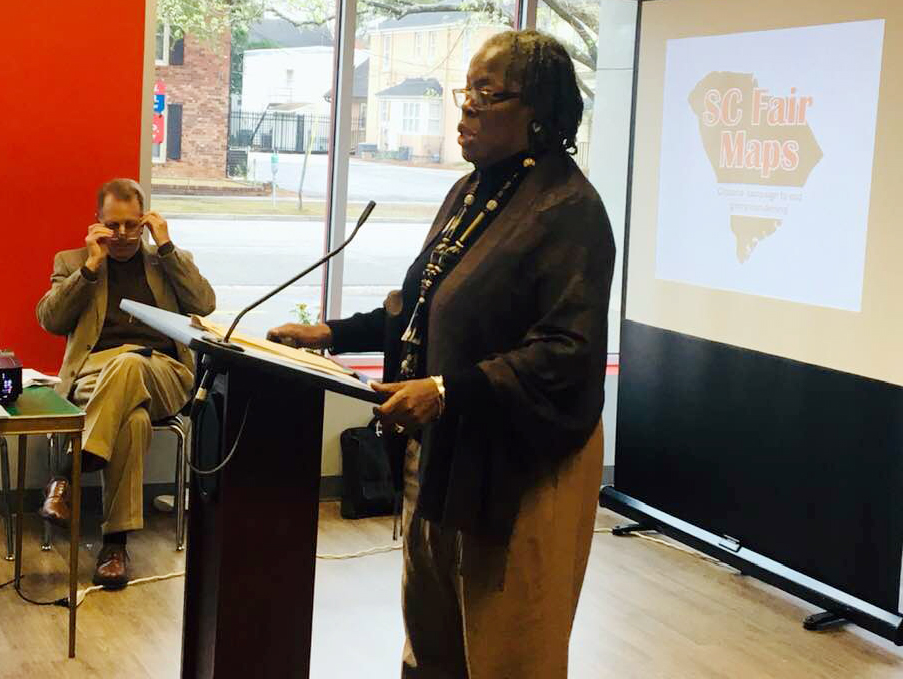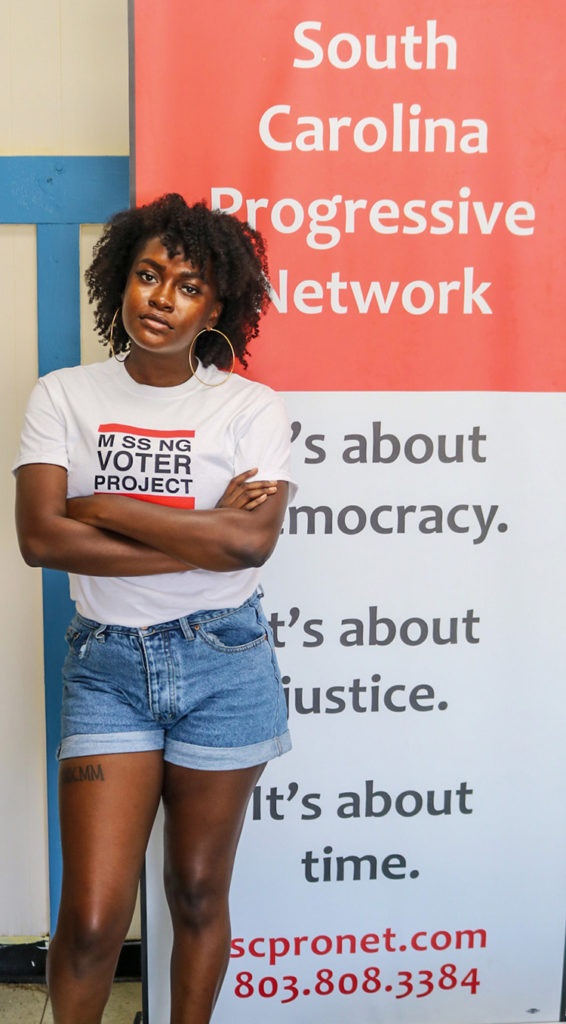
The Missing Voter Project was launched in 2004 to reach and mobilize new and infrequent voters in South Carolina.
Unlike other voter registration drives, the MVP is nonpartisan, ongoing, and focused on historically under-represented communities.
It was created by the SC Progressive Network to grow an informed electorate with the power to mobilize around public policies critical to young people, working families, and communities of color in South Carolina.
While most voter registration drives start anew each election cycle, the MVP works year-round to inform citizens about local and county matters that impact their lives, and to invite them to become involved in a growing movement for social and political change.
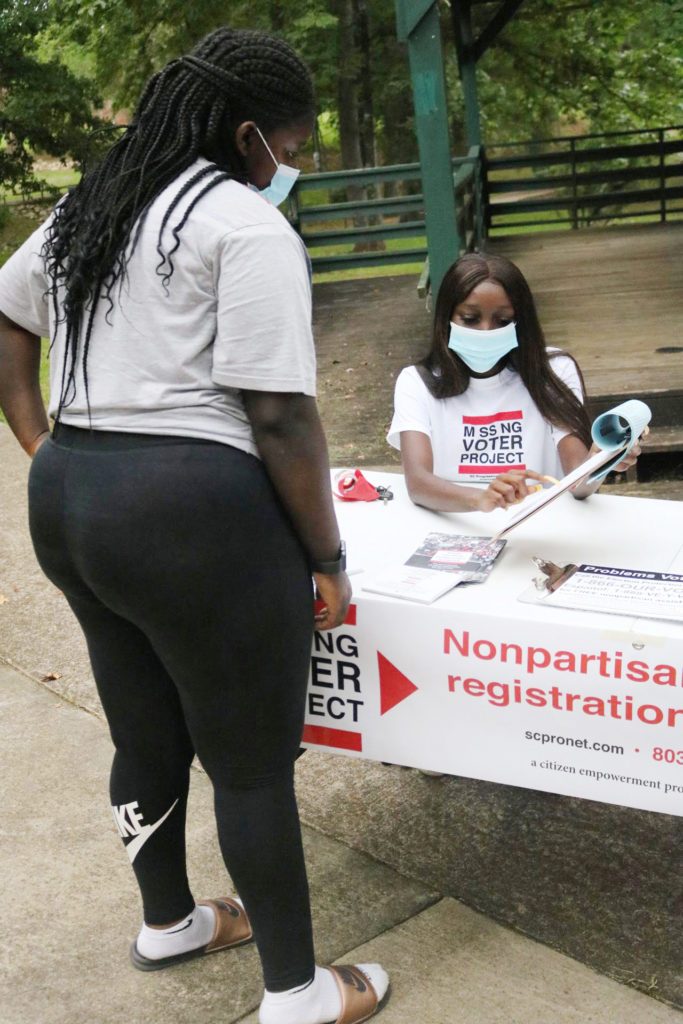
This year, the MVP is using a novel peer-driven approach of asking young, Black voters to reach young, Black non-voters and get them to the polls in November.
Just 15% of South Carolina’s Black voters under age 26 went to the polls in the last general election. Those voters are central to our 2020 MVP campaign.
Over the summer, MVP organizers targeted Saluda and Fairfield, taking advantage of the relationships the Network has built in those counties over the 26 years it has been organizing.
This year, we are raising funds to recruit county-based MVP teams from the 23,087 young Black South Carolinians who voted in the last general election. We challenged them to be the catalyst to turn out record numbers of young, Black voters in 2020. They have the numbers to change history.
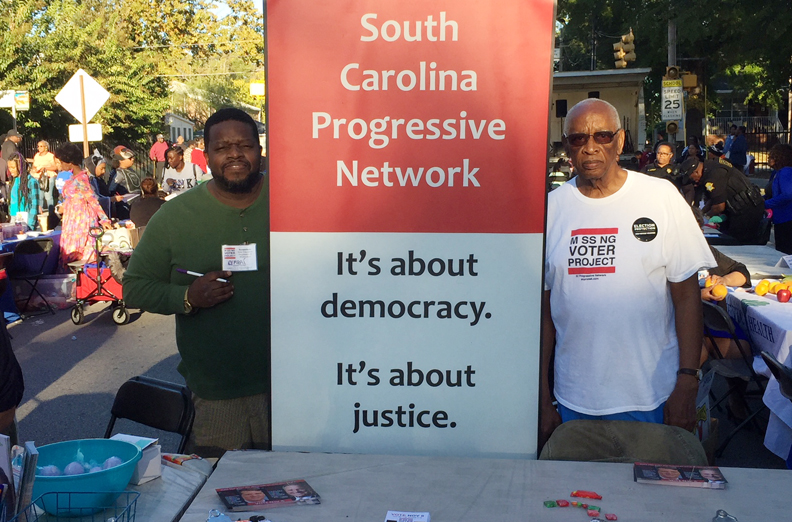
Whether or not the MVP succeeds in that goal this year, we will have laid the groundwork for a multi-year plan to level the imbalance of power codified in the state’s current constitution, created in 1895 specifically to disenfranchise its African-American citizens.
A reckoning is upon us.
These are perilous times, to be sure, but they offer an unprecedented opportunity to challenge, and begin to dismantle, South Carolina’s racially segregated politics.
What we do between now and the election on Nov. 3 can change our lives for many years to come.
While 78% of South Carolina’s nonwhite voting-age population is registered, only half of them regularly vote. An average of 500,000 of the state’s one million registered Blacks (along with 100,000 unregistered citizens), are sitting out the elections. If those “missing voters” were mobilized, it could change everything.
The continuing racial disparities in jobs, housing, health care, poverty, education, and the criminal justice system show that Black lives are devalued in South Carolina. It is not an accident, and it is a problem that won’t fix itself.
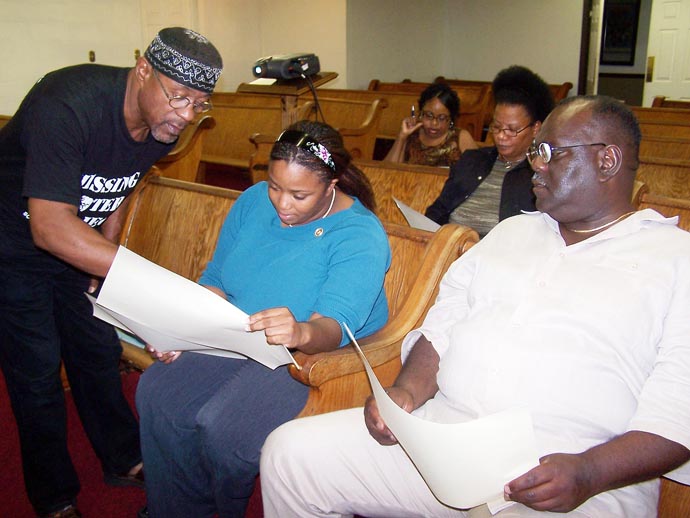
Reality check: for decades, incumbent legislators have been allowed to carve political maps to retain their power by packing Black and White voters into racially segregated political districts. This creates safe seats for incumbents but dilutes the effectiveness of Black votes on state policies.
The MVP is working to motivate and sustain Black civic engagement by showing that we can increase the turnout of Black voters by 200,000 in the only political district that cannot be gerrymandered: a statewide race.
The average margin of victory in the last three governor’s races was only 125,877 votes. If our plan works, it would prove to the half-million Black registered nonvoters that if political districts were not racially segregated their vote could change public policy.
By 2022, an energized Black electorate in South Carolina could determine the state’s next governor, attorney general, and superintendent of education.
The 2020 MVP training will prepare activists to organize county-based petitions in 2021 to force a constitutional amendment on the 2022 ballot to end race-based redistricting. It is part of the Network’s Fair Maps campaign to end partisan gerrymandering in South Carolina. See FairMapsSC.com for details.
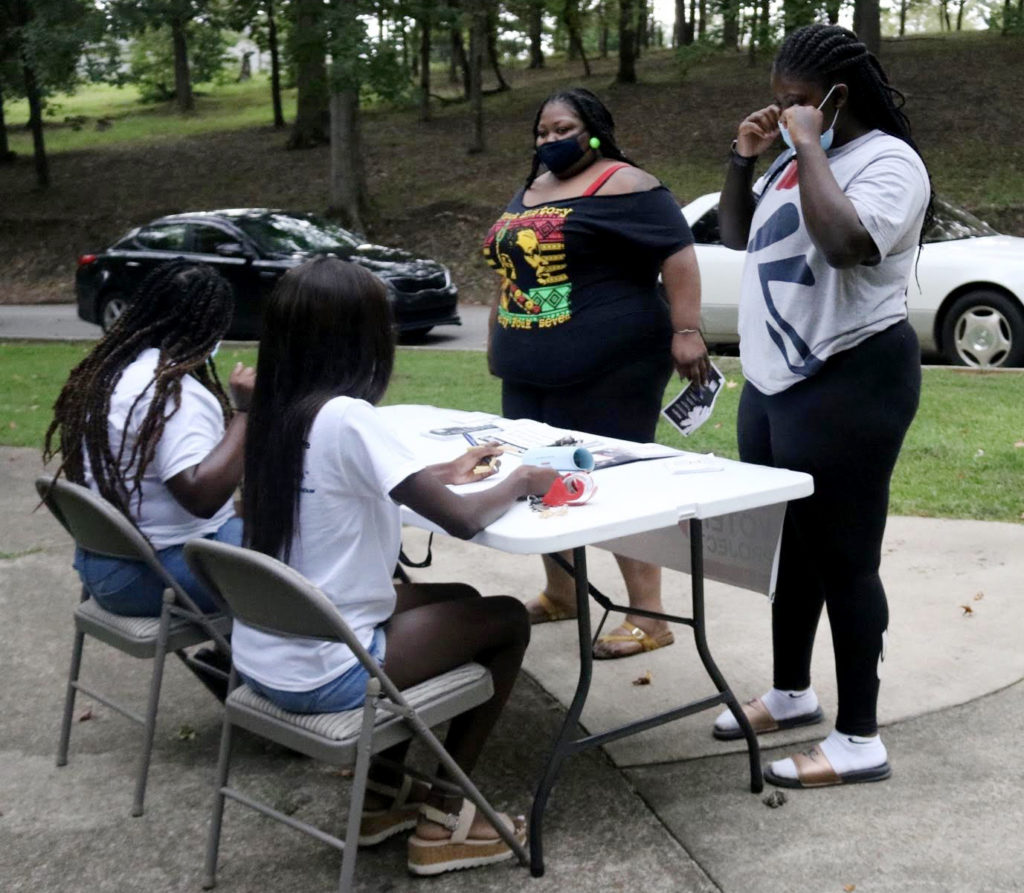
This year’s MVP campaign is designed to train and sustain county-based teams of activists who understand that to make meaningful change will take commitment and longterm vision.
Training includes a component to involve MVP organizers in the statewide election protection work that the Network has anchored since 2004, when the nation’s first paperless voting system was implemented.
MVP volunteers will meet their county’s election director, become credentialed poll watchers, and have the opportunity to participate in their county’s vote certification process.
Volunteer organizers will be trained to help with Census enumeration. With only 57% of citizens counted, South Carolina ranks 44th among states. Each uncounted resident costs our cash-strapped state $15,000 in federal funds this decade.
Last year, we partnered with the new leadership of the NAACP State Conference to test the 2020 MVP to see whether it could effectively be launched statewide. The Memorandum of Understanding was enthusiastically endorsed by the national NAACP office. The plan set our two-county model in place.
As the pandemic worsened, we adjusted recruiting, training, and mobilization strategies to keep organizers and the public safe.
We mailed a letter to young Black voters in our two targeted counties — Saluda and Fairfield — inviting them to join their county MVP team.
It took until 2018 for majority-Black Fairfield County to elect its first Black state representative since Reconstruction.
Ten years earlier, the MVP conducted its first student training at the only high school in Fairfield County. The team registered three times as many new voters than had previously voted. At almost 25%, the county now has the state’s second-highest youth participation rate.
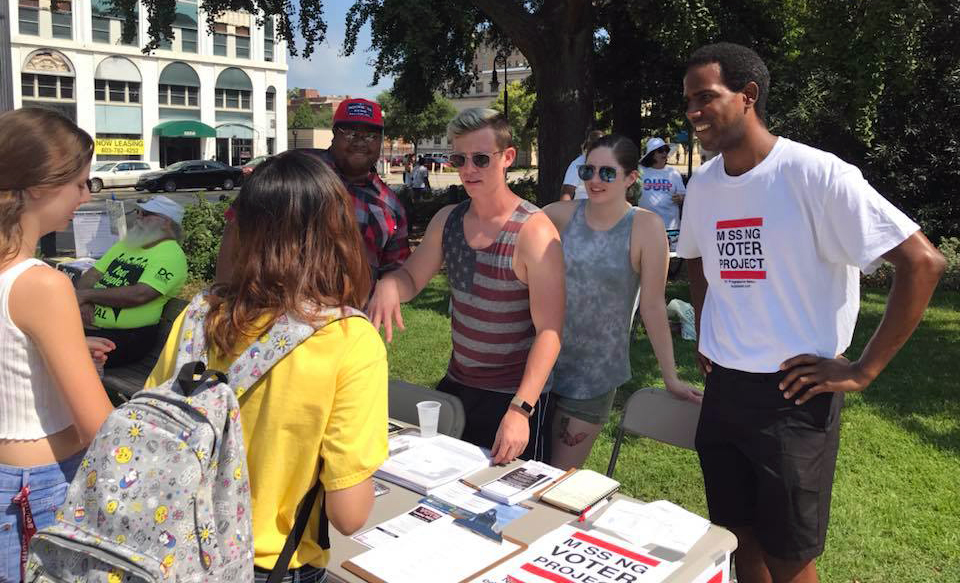
Saluda County is majority-White, and had just 65 young, Black voters in 2018. For decades, the Network has worked with the Riverside CDC, the only enduring civic engagement organization in the county. It prepared us for this campaign.
The level of capacity in this rural county with poor broadband service is requiring a different organizing model than in Fairfield. The differences between the two inform how we are conducting MVP outreach in other counties.
In Saluda and Fairfield counties, the NAACP Branch has partnered with local Network members to support the MVP teams. With their help, we are soliciting community buy-in to help sustain core teams of local activists beyond 2020. We are paying a stipend to trained organizers. The more money we raise, the more boots we can put on the ground.
In both counties, a vibrant organizing core is taking root. Word is getting out that something is happening.
Each week, MVP volunteers are being trained through Zoom sessions, supplemented with socially distanced and masked in-person meetings.
Training includes a short course on democracy and a brief but critical history lesson that explains how our democracy was made — and how we can remake it to be more equitable for a new generation.
The young organizers are excited about leading such a bold and hopeful plan. They are making their first round of calls to other young voters in their county using the State Voices database and an automated Virtual Phone Bank that trained volunteers can access from their phones.
When that list is finished, they will begin calling the registered voters their age who didn’t vote. The next round of calls will go to unregistered young people. And when they have contacted and cajoled their peers, they will then begin calling the county’s older citizens.
With organizing underway in the model counties, the MVP is focusing on Richland County, which houses the state Capitol as well as two HBCUs.
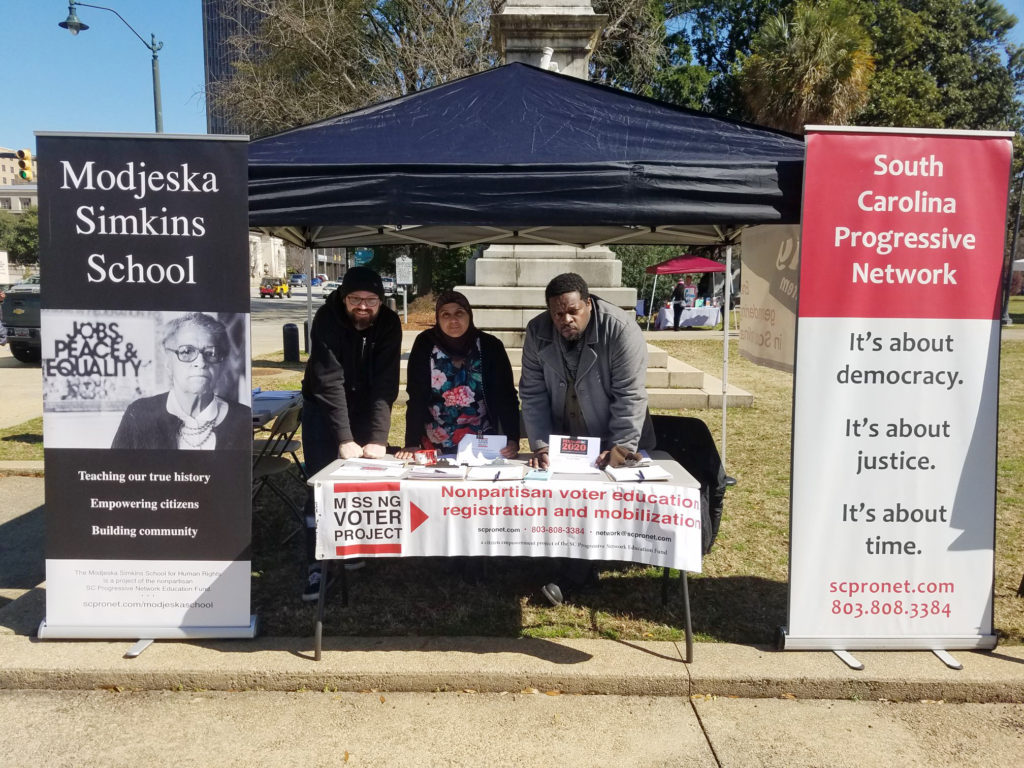
Just 4,306 out of 27,397 young, Black residents of Richland County voted in 2018.
We can change that. 2020 offers an unprecedented opportunity to reconsider our shared values and transform the institutions that have failed in South Carolina by creating systems that work for everyone, not the select few.
There are no short cuts when it comes to grassroots organizing. Trust takes time. Our years of developing ties in some of the state’s most neglected counties has laid the groundwork for us to take the MVP into communities where we can make the biggest impact — not just in the next election, but for decades to come.
While 78% of South Carolina’s nonwhite voting-age population is registered, only half of them regularly vote. An average of 500,000 of the state’s one million registered Blacks (along with 100,000 unregistered citizens), are sitting out the elections. If those “missing voters” were mobilized, it could change everything.
The continuing racial disparities in jobs, housing, health care, poverty, education, and the criminal justice system show that Black lives are devalued in South Carolina. It is not an accident, and it is a problem that won’t fix itself.
Reality check: for decades, incumbent legislators have been allowed to carve political maps to retain their power by packing Black and White voters into racially segregated political districts. This creates safe seats for incumbents but dilutes the effectiveness of Black votes on state policies.

The MVP is working to motivate and sustain Black civic engagement by showing that we can increase the turnout of Black voters by 200,000 in the only political district that cannot be gerrymandered: a statewide race.
The average margin of victory in the last three governor’s races was only 125,877 votes. If our plan works, it would prove to the half-million Black registered nonvoters that if political districts were not racially segregated their vote could change public policy.
By 2022, an energized Black electorate in South Carolina could determine the state’s next governor, attorney general, and superintendent of education.
The 2020 MVP training will prepare activists to organize county-based petitions in 2021 to force a constitutional amendment on the 2022 ballot to end race-based redistricting. It is part of the Network’s Fair Maps campaign to end partisan gerrymandering in South Carolina. See FairMapsSC.com for details.
This year’s MVP campaign is designed to train and sustain county-based teams of activists who understand that to make meaningful change will take commitment and longterm vision.
Training includes a component to involve MVP organizers in the statewide election protection work that the Network has anchored since 2004, when the nation’s first paperless voting system was implemented. MVP volunteers will meet their county’s election director, become credentialed poll watchers, and have the opportunity to participate in their county’s vote certification process.
Volunteer organizers will be trained to help with Census enumeration. With only 57% of citizens counted, South Carolina ranks 44th among states. Each uncounted resident costs our cash-strapped state $15,000 in federal funds this decade.
Last year, we partnered with the new leadership of the NAACP State Conference to test the 2020 MVP to see whether it could effectively be launched statewide. The Memorandum of Understanding was enthusiastically endorsed by the national NAACP office. The plan set our two-county model in place.
As the pandemic worsened, we adjusted recruiting, training, and mobilization strategies to keep organizers and the public safe.
We mailed a letter to young Black voters in our two targeted counties — Saluda and Fairfield — inviting them to join their county MVP team.
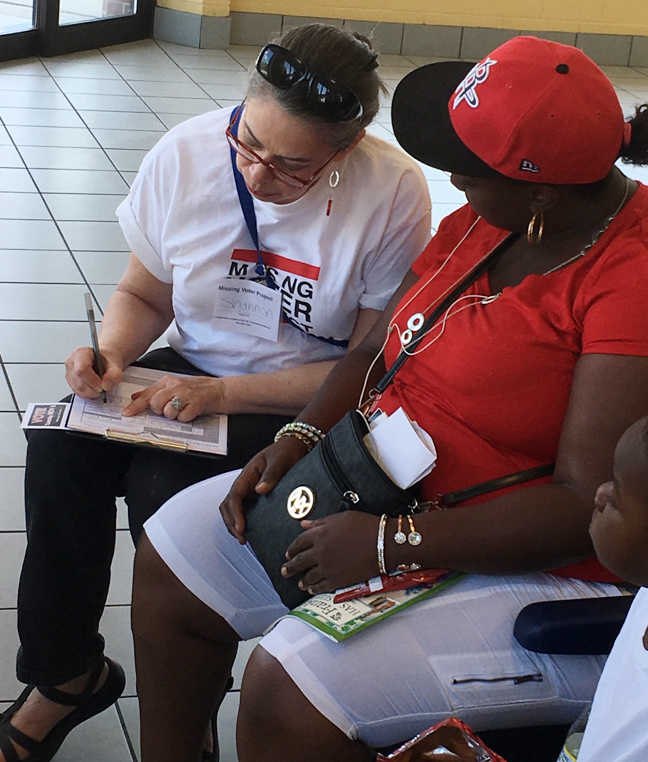
It wasn’t until 2018 that majority-Black Fairfield County elected its first Black state representative since Reconstruction.
Ten years earlier, the MVP conducted its first student training at the only high school in Fairfield County. The team registered three times as many new voters than had previously voted. At almost 25%, the county now has the state’s second-highest youth participation rate.
Saluda County is majority-White, and had just 65 young, Black voters in 2018. For decades, the Network has worked with the Riverside CDC, the only enduring civic engagement organization in the county. It prepared us for this campaign.
The level of capacity in this rural county with poor broadband service is requiring a different organizing model than in Fairfield. The differences between the two inform how we are conducting MVP outreach in other counties.
In Saluda and Fairfield counties, the NAACP Branch has partnered with local Network members to support the MVP teams. With their help, we are soliciting community buy-in to help sustain core teams of local activists beyond 2020. We are paying a stipend to trained organizers. The more money we raise, the more boots we can put on the ground.
In both counties, a vibrant organizing core is taking root. Word is getting out that something is happening.
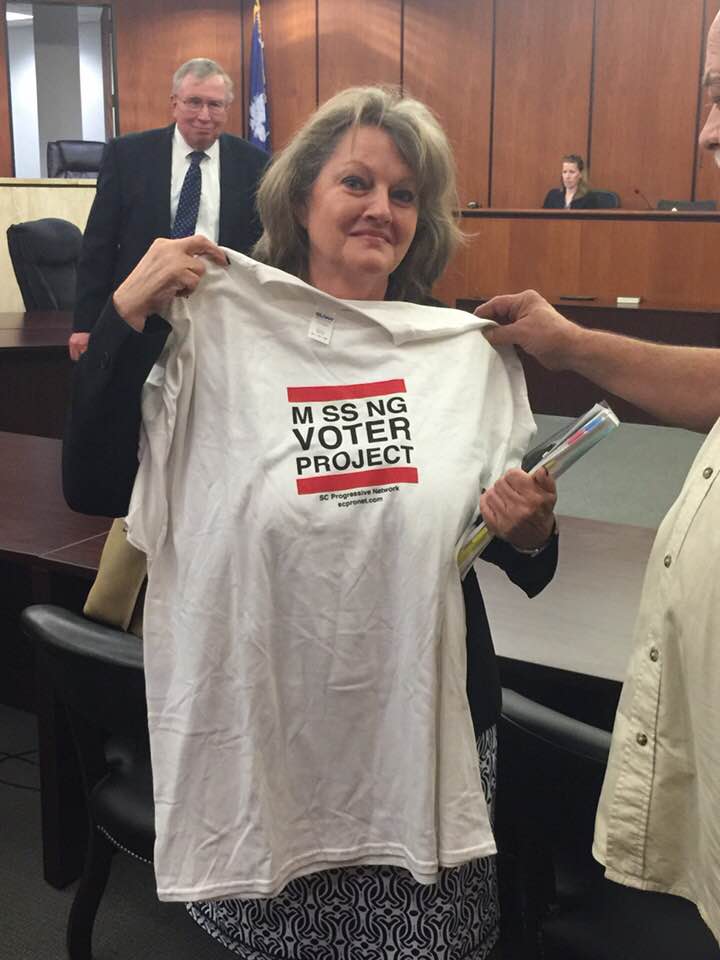
Each week, MVP volunteers are being trained through Zoom sessions, supplemented with socially distanced and masked in-person meetings.
Training includes a short course on democracy and a brief but critical history lesson that explains how our democracy was made — and how we can remake it to be more equitable for a new generation.
The young organizers are excited about leading such a bold and hopeful plan. They are making their calls to other young voters in their county using the State Voices database and an automated Virtual Phone Bank that trained volunteers can access from their phones. When that list is finished, they will begin calling the registered voters their age who didn’t vote. The next round of calls will go to unregistered young people. And when they have contacted and cajoled their peers, they will then begin calling the county’s older citizens.
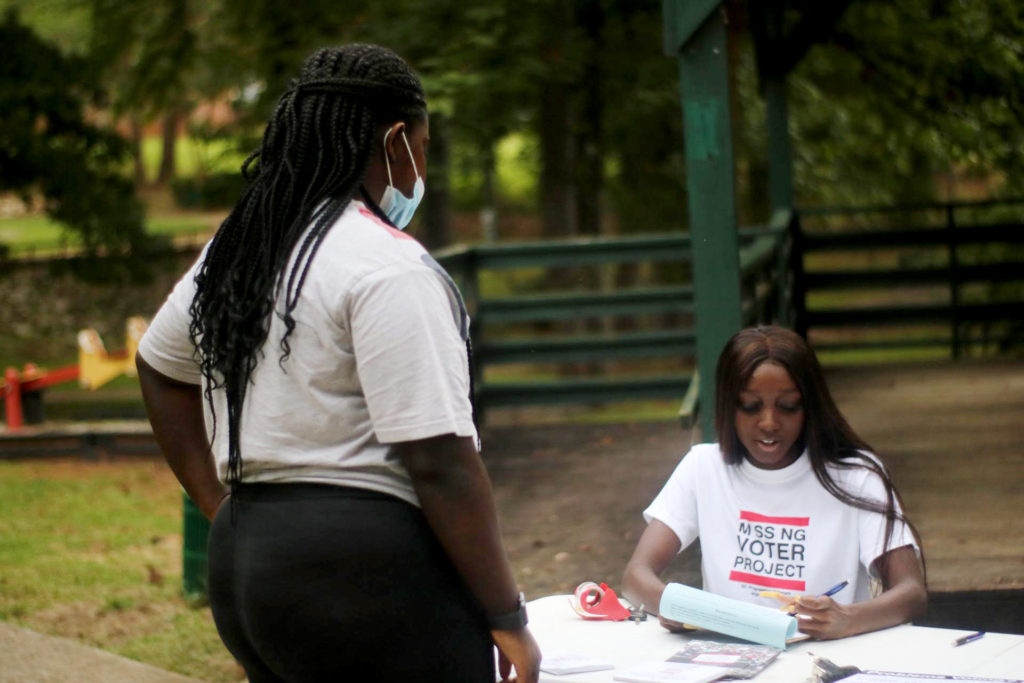
With organizing underway in the model counties, the MVP is focusing on Richland County, which houses the state capitol as well as two HBCUs.
Just 4,306 out of 27,397 young, Black residents of Richland County voted in 2018.
We can change that. 2020 offers an unprecedented opportunity to reconsider our shared values and transform the institutions that have failed in South Carolina by creating systems that work for everyone, not the select few.
There are no short cuts when it comes to grassroots organizing. Trust takes time. Our years of developing ties in some of the state’s most neglected counties has laid the groundwork for us to take the MVP into communities where we can make the biggest impact — not just in the next election, but for decades to come.

